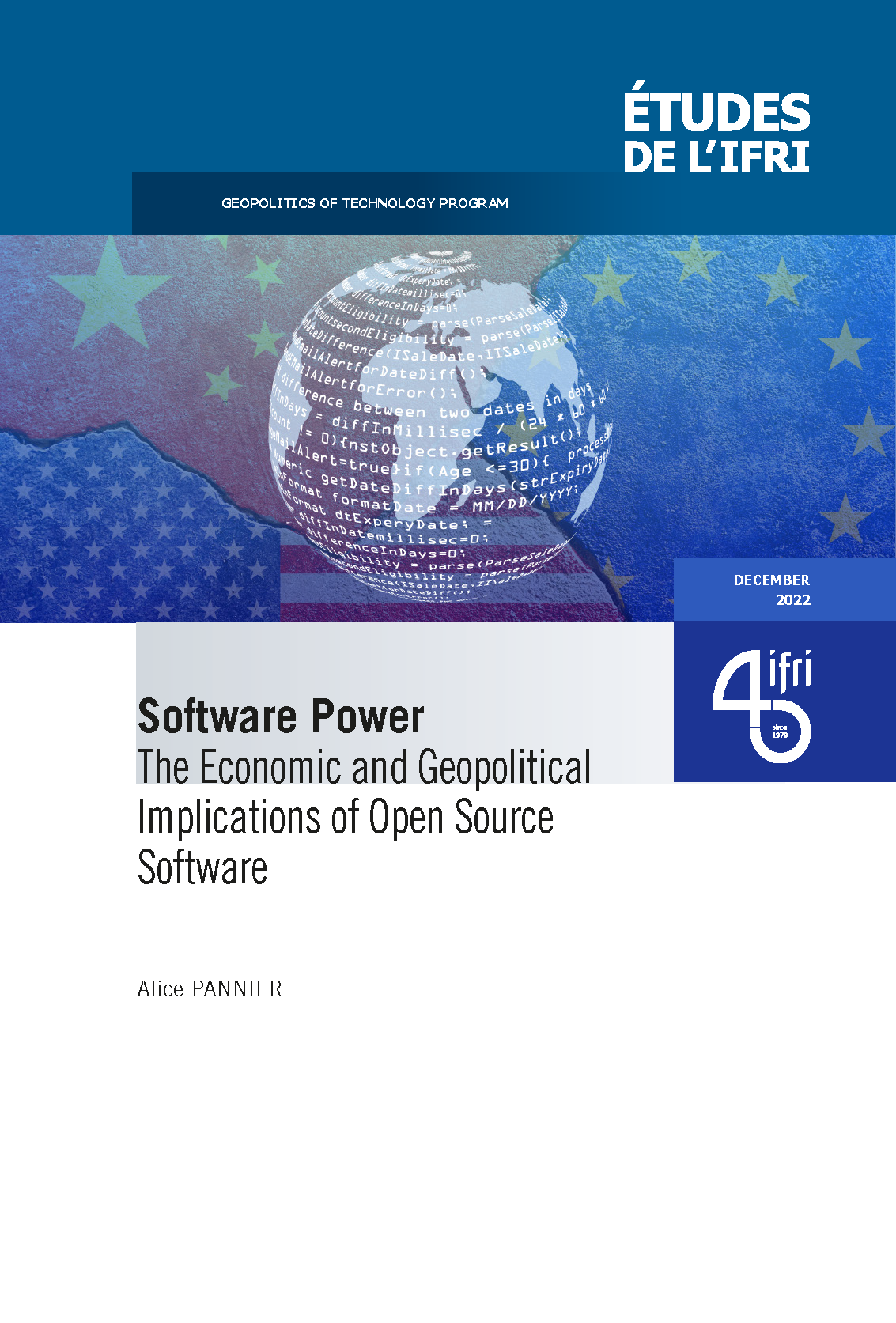Software Power: The Economic and Geopolitical Implications of Open Source Software

Open source is at the heart of the Internet infrastructure, of the software used by individuals or governments, and of the innovation processes of tech companies. Faced with threats to the security and sustainability of the open source model, governments are getting a hold of the topic, which is becoming increasingly geopolitical.

Open source plays a central role in software: it is the foundation of critical software bricks, and has become a major factor for companies’ innovation processes. It is also an attractive alternative to proprietary solutions.
However, open source is a victim of its own success. It suffers of a lack of resources dedicated to the maintenance of open source components, even though vulnerabilities in open source code can have serious consequences, as illustrated by the Log4Shell vulnerability in December 2021.
Private companies have been investing ever more money and human resources in the development and maintenance of open source software, and have acquired structuring roles in the governance of the ecosystem. This support, however, is not without risk for the open source ecosystem, which is increasingly shaped by the private interests of Big Tech companies.
Meanwhile, governments are getting increasingly concerned with the cybersecurity implications of open source software, and with risks of accidental vulnerabilities, and of manipulation of codes by criminals and foreign agents.
An analysis of the United States, Chinese and European cases show that government involvement in open source is not only pragmatic; it is increasingly politicized, and serves to uphold governments’ ambitions for national security, international influence, or digital sovereignty. The study highlights the dilemmas that emerge, for public authorities, from the tensions between the desire to secure universally used, critical open source components, the desire to develop “sovereign” technologies, and the risk of encroaching on the horizontal and decentralized functioning of open source.
This publication is also available in French: Sources d'influence. Enjeux économiques et géopolitiques des logiciels open source

Available in:
Regions and themes
ISBN / ISSN
Share
Download the full analysis
This page contains only a summary of our work. If you would like to have access to all the information from our research on the subject, you can download the full version in PDF format.
Software Power: The Economic and Geopolitical Implications of Open Source Software
Related centers and programs
Discover our other research centers and programsFind out more
Discover all our analysesRegulatory Dynamics and Tensions in the Space Sector: Towards and Americanization of Space Law?
The development of space law has gradually evolved from a top-down normative dynamic dominated by the founding impetus of the UN to a bottom-up normativity driven by national and industrial practices. This evolution is now accompanied by growing normative competition, raising the risk of an Americanization of space law and prompting the question of a European response.
The Sustainability of Space Operations: An Opportunity for European Leadership?
As space becomes a key arena for power projection strategies, while facing growth and diversification of orbital activities, the concept of “space sustainability” is emerging as a new framework of analysis for space governance.
The “Huawei Saga” in Europe Revisited: German Lessons for the Rollout of 6G
While the European Union attempted to coordinate a collective response through its 5G Toolbox in Europe’s 5G infrastructure, member states diverged significantly in balancing political, economic, and technological considerations. Germany, despite its economic ties to China and status as Europe’s largest telecom market, only reached a tentative agreement in July 2024—one that appears largely symbolic.
European Startups and Generative AI: Overcoming Big Tech Dominance
Europe is at a crossroads. Faced with the domination of American Big Tech across the entire generative Artificial Intelligence (AI) value chain, from foundation models to cloud infrastructure, distribution channels, and open source, it risks long-term technological and economic decline. Yet generative AI also represents a major opportunity for economic transformation, with a potential value estimated at 1.5 times France’s gross domestic product (GDP). To turn it into a driver of renewal, Europe must move beyond the illusion of total technological independence and instead build an ecosystem that leverages Big Tech resources while strengthening its own innovation capabilities.












